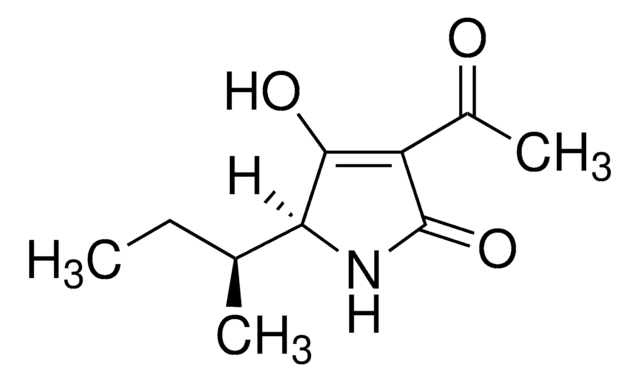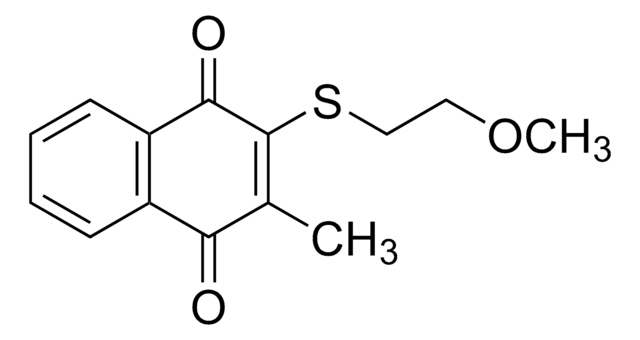47775
Menadione (K3)
analytical standard
Sinónimos:
Menadione
About This Item
Productos recomendados
grade
analytical standard
Quality Level
CofA
current certificate can be downloaded
feature
standard type fat soluble vitamin
packaging
ampule of 1000 mg
technique(s)
HPLC: suitable
gas chromatography (GC): suitable
mp
105-107 °C (lit.)
application(s)
pharmaceutical (small molecule)
vitamins, nutraceuticals, and natural products
format
neat
storage temp.
2-30°C
SMILES string
CC1=CC(=O)c2ccccc2C1=O
InChI
1S/C11H8O2/c1-7-6-10(12)8-4-2-3-5-9(8)11(7)13/h2-6H,1H3
InChI key
MJVAVZPDRWSRRC-UHFFFAOYSA-N
Gene Information
human ... NQO1(1728)
¿Está buscando productos similares? Visita Guía de comparación de productos
Categorías relacionadas
General description
Application
signalword
Warning
Hazard Classifications
Acute Tox. 4 Oral - Aquatic Acute 1 - Aquatic Chronic 1 - Eye Irrit. 2 - Skin Irrit. 2 - Skin Sens. 1 - STOT SE 3
target_organs
Respiratory system
Storage Class
11 - Combustible Solids
wgk_germany
WGK 3
flash_point_f
Not applicable
flash_point_c
Not applicable
ppe
dust mask type N95 (US), Eyeshields, Faceshields, Gloves
Elija entre una de las versiones más recientes:
¿Ya tiene este producto?
Encuentre la documentación para los productos que ha comprado recientemente en la Biblioteca de documentos.
Los clientes también vieron
Protocolos
HPLC Analysis of Fat Soluble Vitamins by Normal Phase Chromatography on Ascentis® S
Nuestro equipo de científicos tiene experiencia en todas las áreas de investigación: Ciencias de la vida, Ciencia de los materiales, Síntesis química, Cromatografía, Analítica y muchas otras.
Póngase en contacto con el Servicio técnico













